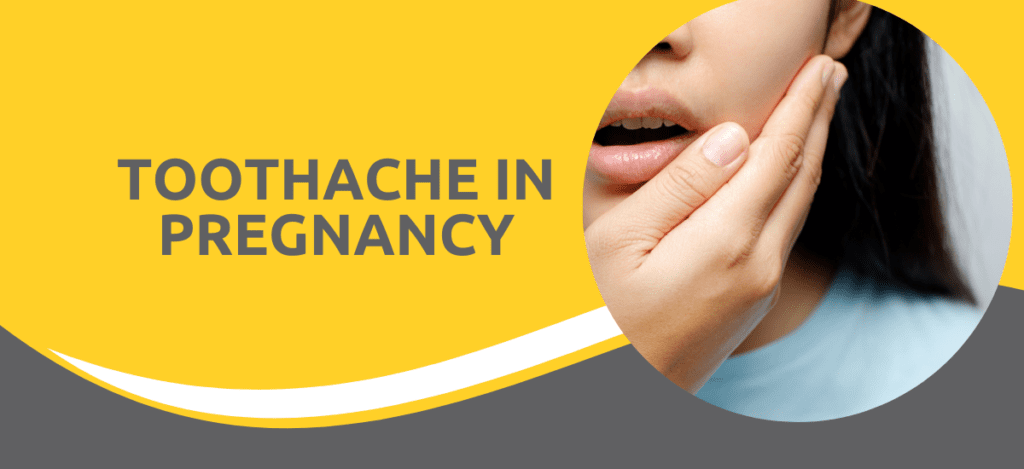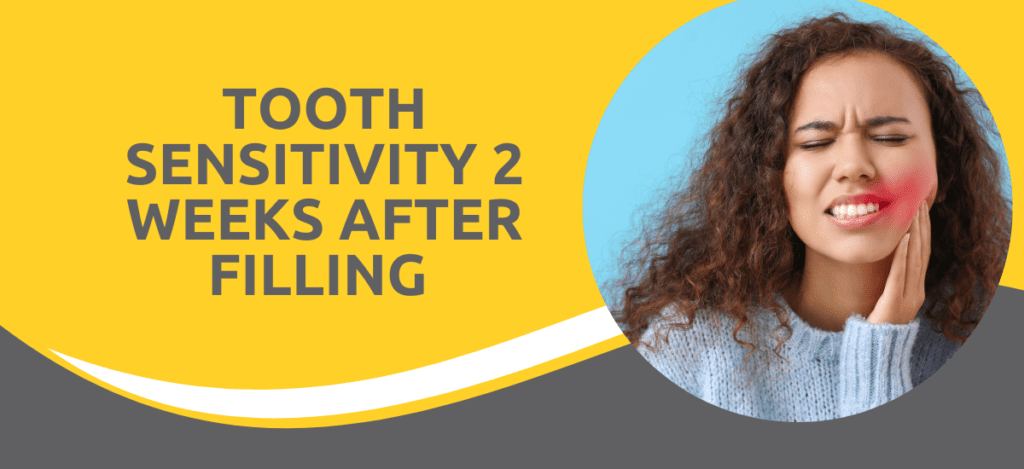
Tooth pain during pregnancy is common due to hormonal changes, increased blood flow, and dietary shifts. Many women experience swelling, sensitivity, cavities and toothache during pregnancy, making oral care crucial.
Dr. Dheeraj Punjabi, along with his team of eminent dentists in Govandi, Mumbai, highlights that pregnancy can make gums more sensitive and increase infection risk. He stresses the importance of good oral hygiene and addressing dental pain promptly for the health of both mother and baby.
At Dental Krafts Dental Clinic in Govandi, we provides specialized care for women experiencing gum and teeth pain during pregnancy. He offers advanced treatments to ensure safe and effective solutions for all dental issues.
First, let’s discuss the reasons for tooth pain during pregnancy.
What Causes Toothache During Pregnancy?
- Pregnancy Gingivitis: Hormones cause gums to swell, making them more prone to infection.
- Increased Acid Reflux: Stomach acids can erode enamel, leading to sensitivity and pain.
- Poor Oral Hygiene: Plaque buildup increases the risk of cavities and infections.
- Toothache due to latent infections During Pregnancy: Old cavities in tooth can aggravate and cause discomfort
Is it normal to experience tooth pain during pregnancy? Here’s what you need to know.
Is Toothache Normal During Pregnancy?

Tooth pain while pregnant is common due to hormonal shifts that affect gum health and increase sensitivity. Mild discomfort is normal, but persistent or severe pain should not be ignored. Proper oral hygiene and routine dental checkups help manage minor issues and prevent complications.
However, toothache accompanied by swelling, bleeding gums, or prolonged pain may indicate underlying problems like infection or decay. Seeking timely treatment ensures oral health remains stable throughout pregnancy, reducing the risk of further dental concerns.
Dealing with toothache during pregnancy? Don’t ignore the signs. Consult an expert for the best care today.
Struggling with persistent tooth pain? Let’s discover what you can do about it.
Safe Treatments for Toothache During Pregnancy
Treating toothache while pregnant requires caution to ensure both maternal and fetal safety. The right approach depends on the severity of the pain and its underlying cause. Below are safe and effective ways to manage discomfort:
Home Remedies for Toothache in Pregnancy

- Saltwater Rinse: Helps reduce inflammation, ease pain, and fight bacteria.
- Clove Oil: A natural pain reliever with antibacterial properties that soothe aching gums.
- Cold Compress: Helps numb pain and reduce swelling in case of gum inflammation.
- Hydration: Drinking plenty of water keeps the mouth moist and flushes out bacteria.
- Soft Diet: Avoiding hard or sticky foods prevents sensitive teeth and gum irritation.
Dental Treatments

- Professional Cleaning: Helps remove plaque and tartar, reducing the risk of gum infections.
- Fluoride Treatment: Strengthens enamel and prevents cavities.
- Safe Medications: Paracetamol (doctor-approved) may be recommended for pain relief.
- Cavity Fillings: Treats decay before it worsens and becomes painful.
- Gum Disease Management: Dentists can provide safe gum disease treatments if needed.
Most routine dental procedures are safe during pregnancy, particularly in the second trimester (ie in the 4-5-6 months) However, it is always best to consult a oral health care provider to determine the safest treatment plan.
Need effective pain relief for toothache in pregnancy? Let’s explore when to seek professional help.
When to See a Dentist?

Knowing when to seek dental care during pregnancy is essential for maintaining oral and overall health. While mild discomfort is common, specific symptoms require immediate attention to prevent complications. Seek help if:
- Pain Persists for Over Two to Three Days: Persistent pain may indicate an infection or cavity.
- Gums Bleed Excessively: Frequent bleeding can signal pregnancy gingivitis or periodontal disease.
- Swelling or Pus Formation Occurs: Swollen gums or pus may indicate an abscess, which needs urgent treatment.
- Fever or Severe Headache Accompanies Pain: This could be a sign of a spreading infection requiring immediate intervention.
- Chewing Becomes Difficult: If biting or chewing causes pain, there could be an underlying issue, such as tooth decay or an impacted tooth.
- Wisdom Toothache During Pregnancy Causes Inflammation: Wisdom teeth may become problematic due to swelling and impaction, requiring evaluation.
Early dental treatment can help prevent minor issues from escalating into severe conditions that may affect both the mother and baby.
Want to avoid dental pain while pregnant? Prevention is always better than cure.
Prevention Tips for Toothache During Pregnancy

- Maintain Good Oral Hygiene: Brush twice daily with fluoride toothpaste and floss regularly to remove plaque buildup.
- Use a Soft-Bristled Toothbrush: Helps protect sensitive gums and reduces irritation with a correct recommended paste
- Rinse with Antibacterial Mouthwash: Reduces harmful bacteria and lowers the risk of gum infections.
- Limit Sugary and Acidic Foods: Prevents cavities and enamel erosion caused by pregnancy cravings.
- Stay Hydrated: Drinking plenty of water helps wash away food particles and maintain saliva production.
- Eat a Calcium-Rich Diet: Dairy products, leafy greens, and nuts strengthen teeth and prevent deficiencies even in your developing child.
- Chew Sugar-Free Gum: Stimulates saliva flow, which helps neutralize acids and prevent decay.
- Schedule Regular Dental Checkups: Routine visits help detect and treat issues before they worsen.
- Avoid Tobacco and Alcohol: These substances increase the risk of gum disease and complications.
These preventive measures can help maintain oral health and reduce the chances of developing severe tooth pain during pregnancy.
Conclusion
Toothache during pregnancy is common but shouldn’t be ignored. Hormonal changes and dietary habits can affect dental health. While home remedies may provide temporary relief, it’s essential to seek professional care from experts like Dr. Dheeraj Punjabi to avoid complications. Prioritizing oral health with regular checkups can lead to a smoother pregnancy journey.
Don’t let tooth pain disrupt your pregnancy journey! Reach out to a seasoned specialist for expert care today.
Frequently Asked Questions
Can I visit the dentist during pregnancy?
Yes, regular checkups are safe. Inform the dentist about your pregnancy for tailored care.
Is wisdom toothache common during pregnancy, and how can it be treated safely?
Yes, it can be painful due to swelling. Rinsing with saltwater or using clove oil can help, but professional consultation is best.
Why does gum and teeth pain occur during pregnancy, and is it normal?
Hormonal changes increase gum sensitivity, leading to swelling, pain, and bleeding. It is common but requires proper care.
Can dental pain during pregnancy harm the baby?
Severe infections may pose risks. Seeking timely treatment is essential for maternal and fetal health.
Are dental X-rays safe during pregnancy?
Most dental X-rays are avoided, but if necessary, protective shields are used to minimize exposure.
Can pregnancy cause loose teeth?
Yes, hormonal changes can loosen ligaments around teeth, making them feel wobbly, but this usually resolves after pregnancy.
What pain relief options are safe during pregnancy?
Paracetamol is generally safe, but it is best to consult a dentist before taking any medication.
Is it safe to get a tooth extraction while pregnant?
Tooth extractions are generally avoided unless necessary. If required, they are best performed in the second trimester.
Reference Links:
Disclaimer: The content shared on this page is for informational purposes and not for promotional use.



